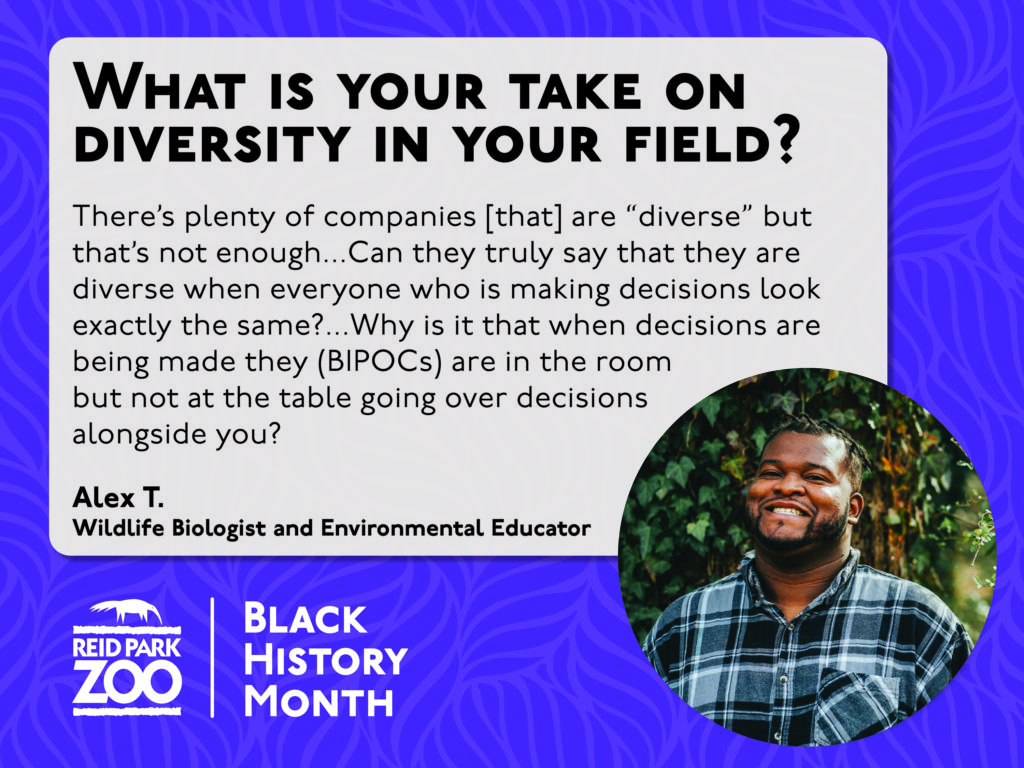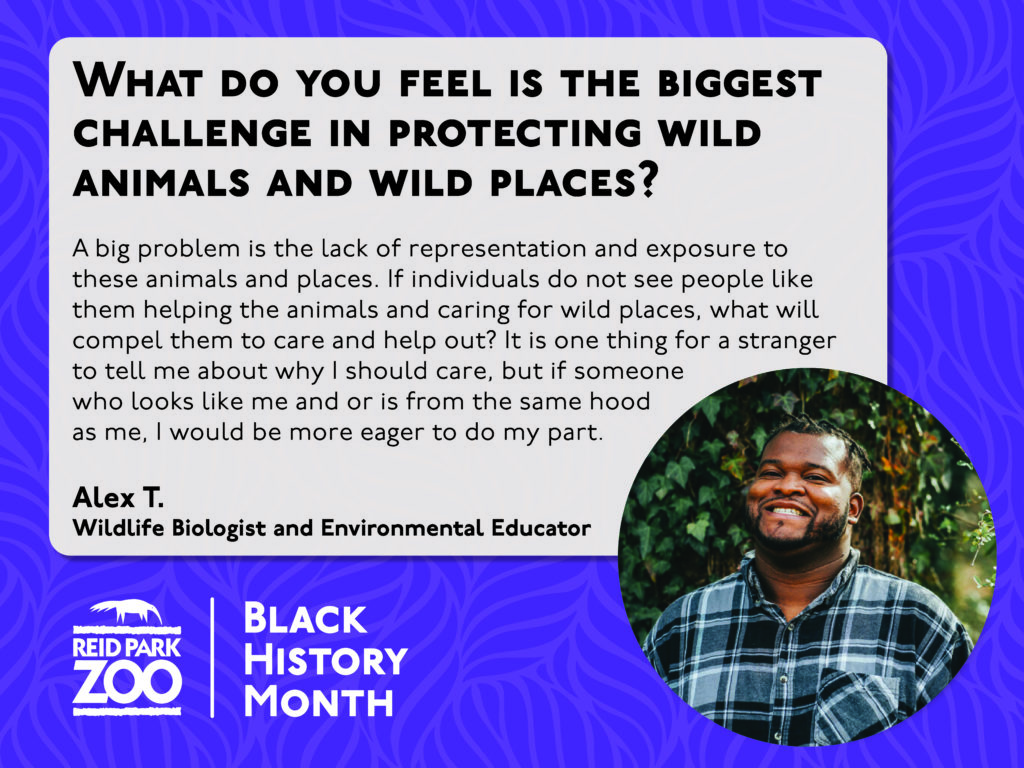Black in Nature: Featuring Alex Troutman

This post is part of “Black in Nature: Tackling Diversity in Conservation,” a Black History Month series giving Black people who work in animal care and conservation a platform to share their experiences and spark the conversation necessary for change. Learn more here.
Alex Troutman is a wildlife biologist, an environmental educator, and a graduate student. He said that his time working in the conservation/environmental field has seen highs and lows.
“It has been an amazing voyage so far full of triumphs and setbacks,” Alex said. “While I’m on this voyage I realize that I’m not only representing myself or the ‘Troutman’ name, but every other Black individual that will come after me. I am proud to be the river that is craving out the rock that eventually will be deeper, will be smooth passage canyon for other scientists like me.”
Alex is proud to be the representation and inspiration that wasn’t available to him growing up. “It has been a great experience coming across fellow Black individuals out enjoying nature, and their face lights up when they see me. They tell me how awesome it is to see someone who resembles them in working in the conservation field. I have been out working on the beach when a black family comes up and introduces to me their children and have me give impromptu careers speeches about my job to their family.”
Alex says he’s proud to have stuck to his dream of working in this field and to have been awarded an Early Career Fellowship from the Safina Center, which will allow him to engage with and encourage the next generation of Black and brown scientists.
Alex is used to being the only Black individual in an organization, and has a history of being told he doesn’t “look” like a scientist. These circumstances have made him hyper-aware of his position and the impact people’s experiences with him will have on other people’s careers in the future.
“I have had to hold back and bite my tongue because of being outnumbered and not wanting to feel like I am the one who is going to make them reconsider hiring future black employees,” Alex said.
Alex says that the one time he worked somewhere that had lots of diversity among employees, that diversity did not extend to upper management. Unfortunately, that is a common theme. “There’s plenty of companies that are ‘diverse,’ but that’s not enough… Can they truly say that they are diverse when everyone who is making decisions look exactly the same? NO. How can everyone with similar experiences know the best practices for the company/organization without input from others.”
“I think we need to reevaluate praising ‘diverse’ companies/organizations. It’s not enough to be diverse, but you need to be inclusive. Hiring one person who happens to be different from everyone else in your office is easy. Companies need to do more to make sure that person is active in decision making.”
Representation in this manner is also critical for conservation organizations to meet their mission. “If individuals do not see people like them helping the animals and caring for wild places, what will compel them to care and help out? It is one thing for a stranger to tell me about why I should care, but if someone who looks like me and or is from the same hood is me I would be more eager to do my part.”
Alex also points out that accessibility needs to be a top priority. “One way that we fail in America at exposing the next generation of conservation workers to wildlife and conservations is making Zoos and Aquariums a commodity for only those who can afford it. I can count on one of my hands how many times I visited the zoo as a child.”

